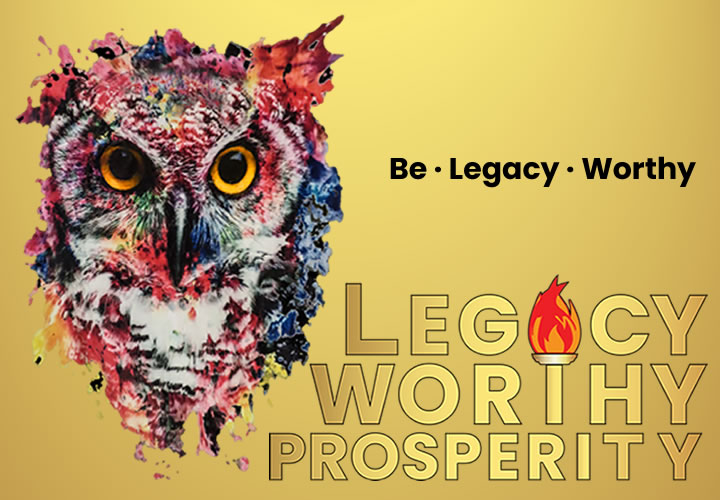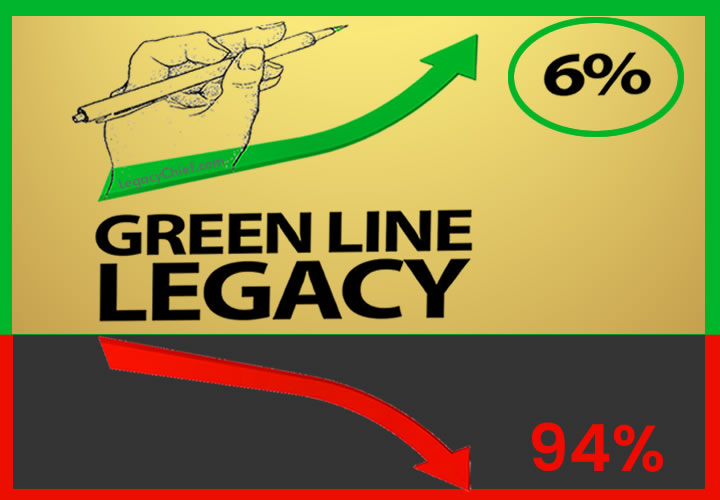The Real Currency: Relationship Riches

Relationships are powerful. From international relations to human social, interpersonal, intimate relations, relationships are the experience we have with each other here on planet earth.
In diplomacy, the term special relationship defines exceptionally strong ties between nations and used notably by Winston Churchill in 1946 to describe relations between the English-speaking people. An example of such a special relationship is the United Kingdom and the United States.
You cannot separate relationships and conversations. How we collaborate and get along with each other is a factor on an international scale and a personal basis. Communication takes many forms.
Sometimes the best conversations have no words. Body language can speak volumes. A nod, a wink can be all the gesture you need to get your point across.
Conversations, whether online, text, or in person, are the basis of relationship building. The real currency is Relationship Riches. Just look at all the social conversations on Twitter, Facebook, and LinkedIn. Whether you’re signing on new customers or holding meetings with a group of clients on a webinar, the quality of conversations that you engage can be a defining factor in your success.
Most commerce revolves around relationships whether business to business or business to consumer. Mathematical and database models also use the term relationship. Even automated businesses start with people planning the strategy and implementing the tactics. In business, and particularly if you are a coach or a consultant providing a service, you can use conversations to create trust and strong connections to build relationships.
Unfortunately, if you have bad habits in your personal relationships, then your conversation style spills over into business, and you may fall into patterns such as “talking over” each other, not listening or needing to being right or wanting the last word. When this happens, the conversation then triggers fear and judgment to takes over. The neuroscience does not matter (but it is interesting to discover hardwired circuits in all human brain functions).
Daniel Goleman defined relationship management as the combination of your self-management and your social awareness to understand emotions in strengthening relationships with others.
Improving relationships begins with communication.
How you talk to your spouse, partner, children, and neighbors is the core of your conversation style.
Close relationships is one area of life where using positive psychology can make a big difference. According to Shelly Gable, associate professor of psychology at the University of California-Santa Barbara, an important key to understanding a relationship’s strength is how it works in good times, not just whether it withstands the bad. Partners’ reactions to each other’s good news can better predict the quality of a relationship (and whether it will endure) than can a partners’ reactions to bad news.
The 3 wrong ways and 1 right way: Gable has found that out of four possible ways to respond to a partner’s positive news, only one the “active-constructive response” is good. Couples whose partners react in any of three less positive ways are at greater risk of separating.
Consider the following example Gable gives to illustrate: Your significant other comes home, beaming, and announces that he/she just got a great promotion at work. You could react with:
1. Active-constructive response. “That’s great, you’ve earned it, I’m so proud of you!” followed by questions. Conveys enthusiasm, support, and interest.
2. Passive-constructive response. “Great job, honey!” then shifting to the next topic. Like dinner.
3. Active-destructive response (what Gable dubs “finding the cloud in a silver lining response”). “Wow! Does this mean you’ll be working later hours? Are they going to be paying you more? I can’t believe they picked you out of all the candidates.” Generally deflating.
4. Passive-destructive response. Can take either of two forms: “Wow! Wait until I tell you what happened to me today,” which is very self-focused, or, “What’s for dinner?”—Ignoring the event altogether.
Positive reactions also magnify the uplifting effects of the good news for the partner who’s doing the sharing, Gable notes. A negative or semi-positive response to a partner’s good news, however, can undercut all the benefits derived from disclosing in the first place, such as fostering trust, intimacy, and satisfaction with the relationship.
Moving into the business realm, because the of the impact of financial gain and career advancement, when you improve conversations you tap the power of communication so you can create even deeper, more impressive results with your clients, team and the whole organization.
You don’t need to be a business leader to take advantage of investing in Relationship Riches. However, it is true that you will find politicians business and spiritual leaders at the core of those who are driving change and achieving superior results by leveraging communication and building relationships. Communication and cooperation have close ties.
In negotiation, the relationship often involves posturing and jockeying for position. If there is a transaction involved (Quid pro quo: you give me this, I’ll give you that) that requires a contingency then, once the transaction is complete, the relationship may plateau and not grow.
In both our personal and business lives, if there is fear of conflict unless you are someone who does not mind confrontation and getting everything out on the table, then the ability to communicate with honesty and care, diminishes. Then there is a block and lack of movement and the relationship stagnates.
In personal relationships, couples in distress reach out to therapists and pastors to get help to re-establish a strong and healthy connection. Focus on connection minimizes the uncertainty of the ’friend or foe’ stance. When we reach out and connect and touch each other through physical touch or kind words; we activate bio-chemicals and the trust networks engage which has a positive impact on bonding.
To re-build the bond there must be intentional communication that is non-defensive and open starting with a conversation that puts your feelings into words. Eugene Gendlin said that when we find the right images, phrases, metaphors, and words to fit our emotions, there is a kind of “resolution” one feels on one’s body and an easing of tension. Next, ask open-ended questions. Do this by either asking targeted questions, “What is your best outcome scenario?” or making unambiguous statements, “Tell me the story of _____ !” Finally, express empathy also known as recognition or validation. This is shown by communicating that, given your partner’s perceptions, these thoughts, feelings, and needs are valid and make sense to you and that you understand the other person’s experience. (It does not mean that you necessarily agree with this person.) You may have an entirely different memory or interpretation of events. You have your own perceptions. Both of your perceptions are valid.
It starts with Stephen Covey’s fifth habit – Seek first to understand, then to be understood. The rule is that understanding must precede any advice. The first goal of the conversation is only to understand, not to problem-solve. The reason that understand must come first is because premature problem solving tends to shut people down and close up. You want openness. Problem-solving and advice should only begin when both parties feel totally understood.
In business relationships, when there is a standstill, a mediator or communication coach is brought in to facilitate conversations. The goal is to help resolve conflict and deadlocks, and mediation is a voluntary process to settle disputes with an impartial third-party. What may also be uncovered are the interaction dynamics between the parties. If you are paying attention to the patterns (and breaking and interrupting the patterns), you may find that it strikes a cord and provides valuable insight. Then you can apply this going forward in with your colleagues and other business relationships. Individuals, teams, and organizations can shift to conversations that fundamentally transform the future of the company. A positive side effect is that you can make decisions faster, with higher levels of wisdom and a greater ability to see the impact you have on others.
Back to currency: Monetary systems of currency are defined by governments, with each type has limited boundaries of acceptance and are classified depending on what guarantees the value. Some currencies are legal tender and others are simply traded for their economic value. Digital currency arose with the popularity of computers and the Internet.
The real currency is Relationship Riches recognizes conversations as the medium of exchange. Within the system of human conversation and interaction, the goal is keep your relationship circulating in a upward spiral as it grows. Organizations take on a system format and you’ll hear a CEO say, “We are like one big happy family.” John Bradshaw described the family as a system and the dynamics associated with the family system.
Way back we were cavemen hunting and trading meat and gathering and trading seeds. We passed the first stages of currency, where metals were used as symbols to represent value stored in the form of commodities. This is the transaction level.
As we have evolved we move up to the transformational level where you’ll find conversations that spark movements and organizations that want change the world for the better. Core values are part of the transformation conversation and they encourage new ideas and openness.
Abraham Maslow’s hierarchy of needs published in 1943 in Psychological Review, “A Theory of Human Motivation,” identified the highest motivation as self-actualization (defined as realizing personal potential, self-fulfillment, seeking personal growth and peak experiences). You must satisfy lower level basic needs before progressing on to be able to reach self-actualization and this is the transcending level where there is an awakening and giving component. There is a deep understanding that the culture and conversation within an organization impact not just profits and customer satisfaction, but how they are perceived as “doing good” in the world. The culture conversation is a mirror of the people and what they think about and how they act. The quality of relationship dialogue is what will take you and your organization to the transcend level.
Who is making deals in business? Those who have built relationships. Who do you have on speed dial? That’s Relationship Riches. And of course, those riches also mean more profits. Business is likely the ultimate lever for making a difference in the world.
Relationship Riches in business give people the ability to have conversations that create businesses from the ‘inside out’ for more impact, more meaning, and more happiness for everyone involved.




